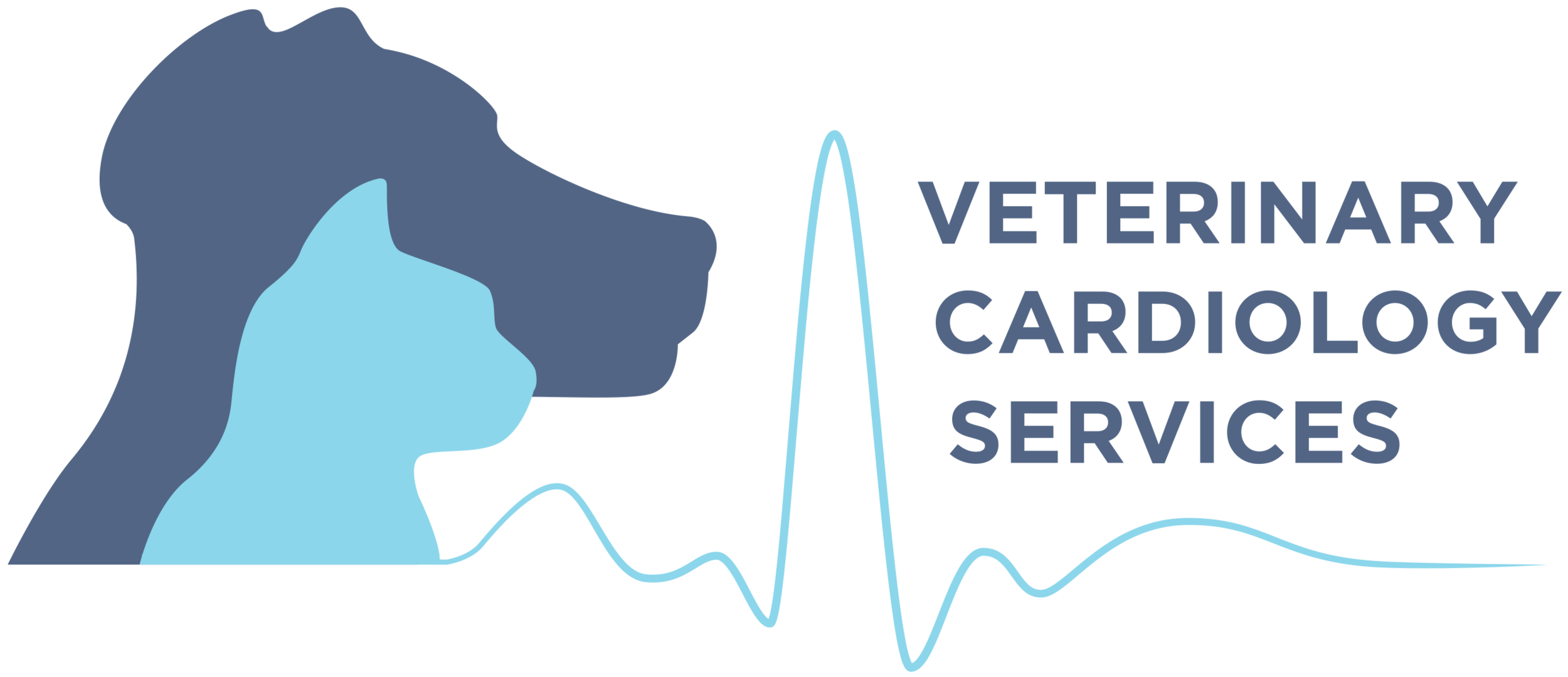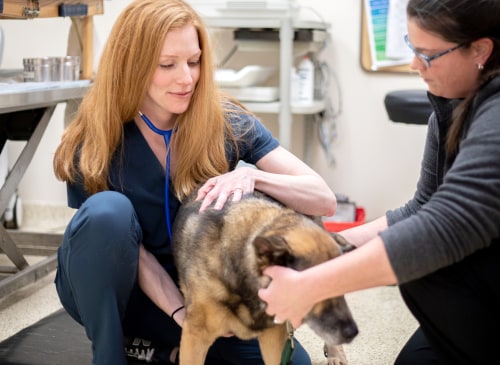Exploring the Vital Solutions Provided by a Vet Cardiologist: Understanding Ultrasound and CT Scan Methods
Veterinary cardiologists play an essential role in the health of family pets by identifying and dealing with various heart disease. They make use of advanced imaging methods, such as heart ultrasound and CT scans, to provide precise evaluations. Each approach has its distinctive benefits and applications. Recognizing these methods is essential for pet proprietors seeking the most effective take care of their companions. What variables should pet dog owners think about when picking between these diagnostic tools?

The Function of Vet Cardiologists in Pet Healthcare
Veterinary cardiologists play a crucial function in the medical care of pets, concentrating particularly on detecting and treating heart-related problems. They have specialized training that permits them to translate intricate diagnostic tests and recognize various cardiovascular problems. These specialists utilize advanced methods, such as echocardiography and electrocardiography, to analyze heart feature and framework accurately.Veterinary cardiologists also develop customized therapy plans that might consist of medications, lifestyle alterations, and, in some situations, surgical interventions. Their know-how reaches educating animal owners concerning heart wellness, stressing the importance of normal exams and early detection of possible problems. Collaboration with basic vets is essential, as it assures complete take care of pets with presumed cardiac concerns. By providing specialized solutions, vet cardiologists significantly improve the top quality of life for pet dogs and offer satisfaction for their proprietors, strengthening the importance of heart wellness in general family pet health.
Common Cardiac Issues in Pet Dogs
Usual heart problems in pets can considerably affect their wellness and lifestyle. Heart whisperings, various kinds of cardiomyopathy, and genetic heart flaws are amongst the most widespread conditions that vets run into. Cancer Veterinary Near Me. Recognizing these concerns is vital for animal proprietors to guarantee prompt medical diagnosis and ideal therapy
Heart Murmurs in Pets
Heart whisperings can be a resource of concern for pet owners, they are not constantly a measure of severe health and wellness issues. A heart whispering is an irregular audio generated by rough blood flow within the heart. In pets, these murmurs can be triggered by various elements, including congenital heart defects, valve problems, or even tension during evaluations. Many family pets with heart whisperings lead regular lives without substantial health and wellness influences. To determine the underlying reason, vet cardiologists usually employ analysis strategies such as echocardiograms and Doppler ultrasounds. Early detection and analysis are crucial, as they might aid handle any potential cardiac concerns efficiently. Animal owners are encouraged to consult their veterinarian for a comprehensive assessment if a heart murmur is identified.
Cardiomyopathy Kind Explained
Cardiomyopathy includes a group of conditions impacting the heart muscle, leading to compromised cardiac function in animals. The most usual types include expanded cardiomyopathy (DCM), hypertrophic cardiomyopathy (HCM), and restrictive cardiomyopathy (RCM) DCM mainly affects pets, triggering the heart to compromise and expand, which lessens its capacity to pump blood effectively. In comparison, HCM is extra prevalent in cats, characterized by the thickening of the heart walls, usually resulting in obstructed blood circulation. RCM, though much less typical, takes place when the heart muscle becomes inflexible, limiting its capacity to loaded with blood. Each type provides unique obstacles in medical diagnosis and therapy, requiring specialized veterinary cardiological analysis to assure peak management and take care of impacted pet dogs.
Genetic Heart Problems
Congenital heart problems represent a considerable group of cardiac concerns in family pets, distinctive from acquired conditions such as cardiomyopathy - Board Certified Veterinary Cardiologist. These issues are structural abnormalities present at birth, influencing the heart's typical function. Typical kinds consist of patent ductus arteriosus, ventricular septal defects, and pulmonic constriction. Signs may differ extensively, varying from light to serious, and can include workout intolerance, coughing, and difficulty breathing. Early medical diagnosis with advanced imaging methods like ultrasound is essential for reliable administration. Vet cardiologists play a crucial duty in recognizing these conditions and recommending appropriate therapy alternatives, which might consist of medical monitoring or surgical treatment. Acknowledging hereditary heart problems enables much better results and enhanced lifestyle for impacted animals
Comprehending Cardiac Ultrasound: How It Functions
A significant variety of veterinary practices currently utilize cardiac ultrasound as a necessary diagnostic device for assessing heart wellness in animals. This non-invasive technique uses high-frequency acoustic waves to develop pictures of the heart's framework and function. During the treatment, a veterinary professional uses a gel to the pet's look at here now chest and utilizes a transducer to discharge ultrasound waves. These waves jump off the heart and bordering frameworks, creating real-time images on a monitor.Veterinarians can evaluate different aspects of cardiac health and wellness, including chamber dimension, wall surface movement, and valve feature. Additionally, heart ultrasound permits the detection of irregularities such as fluid accumulation and congenital heart defects. This method is vital for identifying problems that might not show up through common radiographs. By giving detailed information regarding the heart's makeup and efficiency, heart ultrasound aids in formulating reliable therapy plans for pets experiencing heart condition.
The Value of CT Checks in Identifying Heart Conditions
How do CT scans enhance the medical diagnosis of heart conditions in veterinary medication? CT scans provide detailed cross-sectional pictures of the heart and bordering frameworks, enabling vets to visualize complex anatomical partnerships. This imaging technique is specifically advantageous in identifying genetic heart defects, heart lumps, and irregularities in blood vessels. By utilizing advanced imaging algorithms, CT scans can analyze heart chamber dimensions and feature, offering an extensive sight that might be tough to attain with standard methods.Additionally, CT angiography can imagine blood circulation and identify locations of stenosis or obstruction, which is vital for planning possible treatments. The speed and accuracy of CT scans additionally facilitate fast diagnoses, important in emergency situation situations. Inevitably, the unification of CT checks right into veterinary cardiology substantially boosts the precision of medical diagnoses, making it possible for targeted therapy plans and enhancing individual outcomes for pets struggling with heart disease.
Comparing Ultrasound and CT Check Techniques
While both ultrasound and CT scans are indispensable tools in vet cardiology, they provide distinctive benefits and limitations that affect their usage in identifying heart problems. Ultrasound, or echocardiography, supplies real-time imaging of the heart's structure and function, allowing veterinarians to evaluate heart chambers, shutoffs, and blood flow. It is particularly effective for reviewing conditions like heart disease and cardiomyopathy. Ultrasound might be limited in picturing specific anatomical structures due to client size or obesity.In comparison, CT scans offer detailed cross-sectional images of the heart and bordering cells, making them check my blog excellent for identifying structural irregularities, lumps, or vascular concerns. CT scans give detailed insights, they call for sedation and might involve radiation exposure. Ultimately, the choice between ultrasound and CT scans depends on the details medical scenario, the individual's problem, and the details required for an accurate medical diagnosis.
Treatment Alternatives Offered Via Vet Cardiology
Vet cardiology provides a series of treatment alternatives customized to address numerous heart problems in animals. Treatment strategies commonly begin with way of life modifications, including diet modifications and exercise adjustments, targeted at boosting general heart health. Drugs play an essential role, with cardiologists recommending medicines such as diuretics, beta-blockers, and ACE preventions to take care of symptoms and boost heart function.In more serious instances, interventional treatments, such as balloon valvuloplasty or stent placement, might be necessary to alleviate blockages or improve blood flow. For sure congenital heart issues, medical options may be explored to deal with architectural problems. In addition, ongoing monitoring and follow-up care are vital elements of a complete treatment plan, permitting timely changes based upon the pet's feedback to therapy. In general, veterinary cardiology concentrates on offering reliable, personalized care to maximize the health and health of animal people with heart disease.
Just how to Prepare Your Pet for a Heart Assessment
Preparing an animal for a heart analysis is vital to ensure exact results and a smooth process. Proprietors must initially arrange the consultation with the veterinary cardiologist and talk about any kind of details requirements or issues. It is a good idea to keep food for a minimum of 12 hours before the evaluation, as this aids improve imaging high quality throughout procedures like ultrasound or CT scans.Additionally, maintaining a calm setting on the day of the appointment can assist decrease the pet's stress and anxiety. It is beneficial to bring along any kind of appropriate clinical records, consisting of previous examinations and drugs (Ultrasound For Dogs). Proprietors must additionally ensure that their family pet is comfy and leashed during transportation to the center. Acquainting themselves with the assessment process can aid and minimize fears in asking informed questions throughout the examination. By complying with these steps, owners can add substantially to the efficiency of the cardiac assessment
Often Asked Questions
The length of time Does a Heart Ultrasound or CT Scan Take?
The period of a cardiac ultrasound generally ranges from 30 to 60 mins, while a CT check might take approximately 15 to 30 mins. Factors such as the patient's problem can influence these time quotes.

Are There Any Risks Connected With These Diagnostic Treatments?

Can I Remain With My Family Pet During the Procedure?
The veterinary center's plan usually determines whether pet owners can continue to be during treatments. While some clinics encourage proprietor existence for comfort, others may call for splitting up to guarantee safety and suitable conditions for analysis imaging.
Just how much Do These Diagnostic Examinations Typically Cost?
The prices of analysis examinations, such as ultrasound and CT scans, normally differ based on area and center. Typically, rates range from a few hundred to over a thousand dollars, reflecting the complexity and innovation included.
What Is the Recovery Process After a Heart Assessment?
The healing procedure after a heart evaluation entails keeping track of the animal for any instant reactions, guaranteeing convenience, and limiting physical task. Veterinarians usually give post-evaluation directions to direct pet owners throughout this essential healing period. Heart whisperings, numerous kinds of cardiomyopathy, and genetic heart flaws are among the most common problems that veterinarians run into. A heart whispering is an uncommon audio generated by stormy blood circulation within the heart. Cardiomyopathy encompasses a group of conditions impacting the heart muscle, leading to jeopardized heart function in pets. Congenital heart flaws stand for a considerable category of heart concerns in animals, unique from acquired conditions such as cardiomyopathy. Full Report Ultrasound, or echocardiography, gives real-time imaging of the heart's framework and function, permitting veterinarians to examine heart chambers, shutoffs, and blood flow.